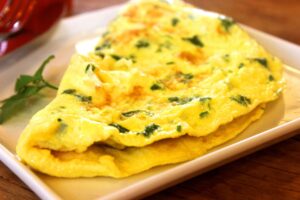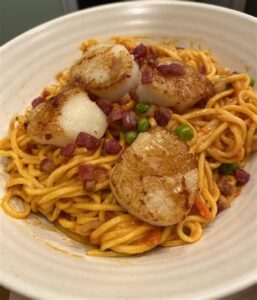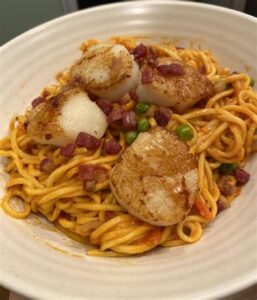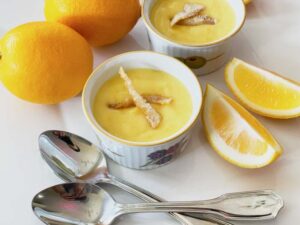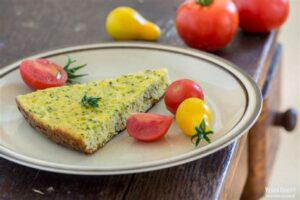duck egg recipes are a unique and flavorful alternative to chicken eggs, offering a richer taste and larger size. They have a thicker shell and a higher fat content, which makes them an appealing choice for those looking to elevate their cooking. While chicken eggs are more commonly used, duck eggs are widely appreciated in various cuisines for their distinct qualities.
Benefits of Using Duck EggsNutritional Value of Duck Eggs
Duck eggs are packed with nutrients that provide a boost to your diet. They contain higher levels of protein, fat, vitamins, and minerals compared to chicken eggs, making them an excellent choice for those looking to add more nutritional value to their meals. Duck eggs are rich in Vitamin A, B12, and Omega-3 fatty acids, which contribute to overall health and well-being.
Health Benefits: Protein, Fat, and More
The higher protein and fat content in duck eggs can help support muscle growth, improve skin health, and boost energy levels. The extra fat also contributes to a richer taste and texture in recipes. The Omega-3 fatty acids found in duck eggs are beneficial for heart health, helping to reduce inflammation and promote brain function.
How Duck Eggs Enhance Recipe Flavor
Duck eggs have a distinct, creamy, and richer flavor than chicken eggs, which can elevate the taste of both savory and sweet dishes. Whether you’re making an omelet, quiche, or custard, the flavor of duck eggs adds depth and a luxurious touch that can make your recipes stand out. Their natural richness also results in a smoother, more decadent texture in baked goods and desserts.
Tips for Cooking with Duck Eggs
1. Use Duck Eggs in Recipes That Benefit from Richness
Duck eggs are known for their rich flavor and creamy texture, making them ideal for recipes that benefit from these qualities. Consider using duck eggs in custards, cakes, meringues, and sauces, where their higher fat content can create a smoother, richer consistency. If you’re substituting duck eggs for chicken eggs, remember that the resulting dish will be more flavorful and dense.
2. Adjust Cooking Times for Duck Eggs
Duck eggs take slightly longer to cook than chicken eggs due to their thicker shells and larger size. When frying or boiling duck eggs, allow a little extra time to ensure the whites are fully set and the yolk reaches your desired consistency. For instance, hard-boiled duck eggs may need an extra 2-3 minutes compared to chicken eggs.
3. Be Gentle When Scrambling Duck Eggs
The richness of duck eggs makes them more delicate than chicken eggs, so when scrambling, cook them over low heat to avoid toughening the texture. Stir gently and avoid overcooking. Duck egg scrambles are at their best when soft, creamy, and slightly runny. If you want extra creaminess, add a splash of milk or cream while beating the eggs.
4. Use Duck Eggs in Baking for Enhanced Texture
Duck eggs make an excellent addition to baked goods like cakes, cookies, and pastries because their higher fat content adds moisture and a tender crumb. You can substitute one duck egg for one chicken egg in most recipes, but keep in mind that the results will be richer and denser. For lighter textures, such as in soufflés or spongy cakes, ensure you beat the duck eggs well to incorporate air into the mixture.
5. Experiment with Duck Egg Omelettes and Frittatas
Duck eggs are perfect for making rich, fluffy omelettes and frittatas. Their larger size means you’ll need fewer eggs for a substantial dish. When making an omelette, beat the duck eggs thoroughly and cook them gently over low heat to achieve a creamy, soft texture. Add cheese, herbs, or vegetables for a flavorful, satisfying meal.
6. Don’t Overcook Duck Egg Yolks
Due to the richness of duck eggs, the yolks can become firm or overly greasy if overcooked. If you’re making fried or poached duck eggs, be careful not to cook the yolks too long. The ideal consistency for most people is a runny or slightly set yolk. For soft-boiled eggs, cook for 5-7 minutes for a perfectly gooey yolk.
7. Consider Using Duck Eggs in Soups and Sauces
Duck eggs can enrich soups and sauces, especially creamy ones like chowders, bisques, or hollandaise. For smooth textures, whisk the duck eggs into the hot liquid gradually, ensuring they don’t curdle. Their higher fat content will provide extra creaminess, making your soups and sauces feel more luxurious.
8. Handle Duck Egg Shells With Care
Duck eggs have thicker shells than chicken eggs, so they can be a bit trickier to crack. Use a sharp tap on a flat surface rather than an edge, as this will help crack the shell cleanly. Also, be cautious when peeling hard-boiled duck eggs—sometimes the shell can stick to the egg white due to the egg’s natural coating, so a gentle tap and roll on a hard surface can help loosen it.
9. Duck Eggs for Special Occasions
Due to their richer flavor, duck eggs can elevate a meal, making them perfect for special occasions. Whether you’re preparing an elegant quiche, a luxurious dessert like lemon curd, or a decadent breakfast like poached eggs on toast, duck eggs bring a gourmet touch to your cooking.
10. Pair Duck Eggs with Bold Flavors
The flavor of duck eggs is stronger and more pronounced than that of chicken eggs, so they pair well with bold flavors. Use them in recipes with strong seasonings, such as garlic, herbs, cheese, and spicy salsas. Duck eggs also complement rich dishes like smoked salmon, bacon, and earthy vegetables like spinach and mushrooms.
By understanding these tips, you can make the most of duck eggs in your cooking and enjoy their unique flavor and texture in a variety of dishes.
- Health and Nutrition Information:
- “Learn more about the nutritional benefits of duck eggs from Healthline”
Healthline – Egg Nutrition
- “Learn more about the nutritional benefits of duck eggs from Healthline”
- Egg Safety and Storage Guidelines:
- “For proper egg storage and safety guidelines, visit the USDA Egg Safety Center”
USDA – Egg Safety
- “For proper egg storage and safety guidelines, visit the USDA Egg Safety Center”
- Duck Egg Recipes from a Reputable Source:
- “Explore more recipes using duck eggs at BBC Good Food”
BBC Good Food – Duck Egg Recipes
- “Explore more recipes using duck eggs at BBC Good Food”
- Information on Duck Egg Farming and Benefits:
- “Find out about duck egg farming from the American Egg Board”
American Egg Board
- “Find out about duck egg farming from the American Egg Board”
- Sourcing Duck Eggs:
- “Looking for fresh duck eggs? Check out this online supplier”
Farm Fresh Eggs – Local Suppliers
- “Looking for fresh duck eggs? Check out this online supplier”
By linking to these authoritative, reputable external sources, you not only provide more useful information for your readers but also improve your page’s SEO by offering outbound links to credible websites.


